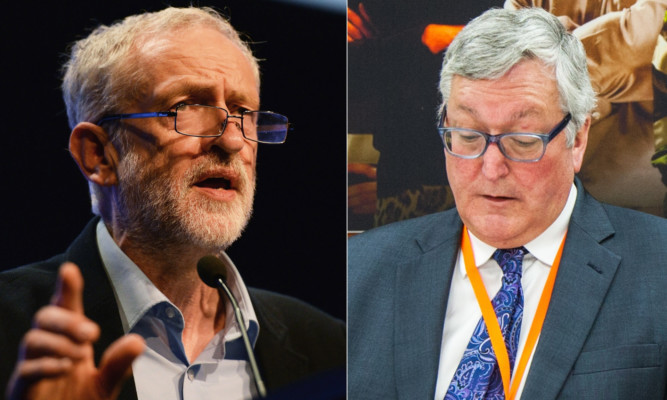New Labour leader Jeremy Corbyn’s plan to nationalise the energy industry would spell a “dire” future for oil and gas production in the North Sea, according to Scottish energy minister Fergus Ewing.
Mr Ewing renewed his demand for the UK Government to use tax incentives to stimulate exploration after plummeting oil prices rendered many projects uneconomical.
Scottish Labour backed Mr Ewing’s call for Westminster to work with the energy companies, prompting a critical aside from Mr Ewing on Jeremy Corbyn’s call for public ownership of gas and the National Grid.
In a statement to Holyrood, Mr Ewing said the oil and gas industry requires “a stable fiscal environment, not subject to damaging tax rates like in 2011”.
“It is imperative that the UK Government commits to no tax rises during the lifetime of the UK Parliament and that any significant policy proposals will be consulted upon with industry and the Oil & Gas Authority,” he said.
He welcomed steps taken in recent budgets to help the industry, including a basin-wide investment allowance and reduction in the headline rate of tax, but added that the announcements had been a “missed opportunity” for wider fiscal reform.
Mr Ewing said: “To drive further reforms, decisions on fiscal policy should be underpinned by the principle of maximising economic recovery (MER).
“The MER policy will only work if the UK explicitly commits to using their fiscal levers appropriately. Without that, the operators will simple invest elsewhere.”
Labour public services spokeswoman Jackie Baillie said: “We join with the Scottish Government in supporting further tax incentives to the industry.
“But has the minister done any analysis of cost and will he publish this because the tax revenue from oil is at an all-time low, much less than was forecast by the SNP in their White Paper (on Scottish independence)?”
Mr Ewing said: “I am very pleased to hear that the official Labour position is that we should recognise that reduction of costs is a requirement for the oil and gas industry.
“I was in a state of not entire certainty following the election of their new leader at the weekend, who has previously expressed views that the industry should be nationalised.
“Were there to be any mention of that, then the future of the exploration and production companies which is challenged at the moment would be dire indeed.”
He praised the exploration tax credit system implemented by Norway, which aided the discovery of the 1.8 billion barrel Johan Sverdrup field which is expected to add several billion pounds to Norway’s £500 billion oil fund.
He said “there may well be substantial new discoveries around the west coast of Scotland”, citing the recent discovery of the giant Clair Ridge field west of Shetland.
